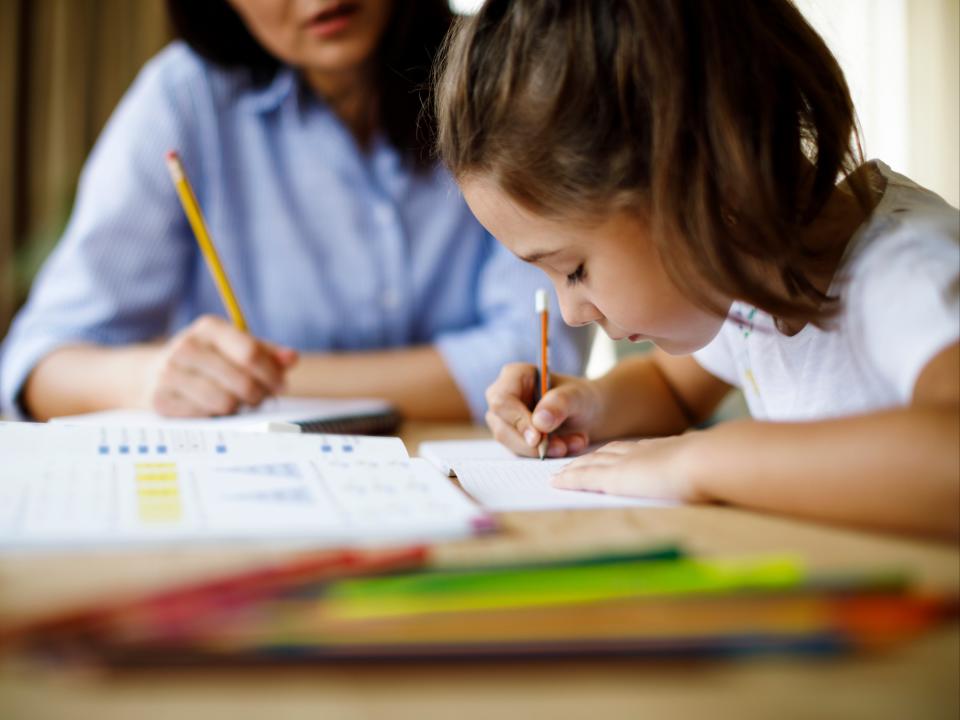Around £13.5bn needed to help children catch-up from pandemic, think-tank finds

The government needs to invest around £13.5bn to help reverse damage caused by the coronavirus pandemic on pupils, according to a think-tank.
A new report by the Education Policy Institute (EPI) said this funding package was needed over three years to tackle the long-term impact of Covid-19, which kept most pupils out of school during two national lockdowns.
This is more than seven times greater than the £1.7bn that has been committed to date to help pupils “catch-up” on missed learning - including extra funding going towards tutoring.
The government’s education recovery commissioner, Sir Kevan Collins, is still considering long-term proposals to address the impact of Covid on children.
In its report, the EPI offered “ambitious” and costed suggestions on how pupils should be supported, with the executive chairman saying he hoped it would be a “useful contribution” to Sir Kevan’s work.
The report recommended a variety of policies, including extending school hours to host sports clubs, social activities, games, pastoral support and academic programmes.
It said summer wellbeing programmes should be open to all school-aged children - rather than just targeted at Year 7s - and the government should introduce a new right for pupils to repeat a year of education, where it is supported by their parents, to tackle extreme cases of learning loss.
It also suggested more incentives for teachers to work in "challenging areas", an increase in rates and expansion of eligibility for pupil premium - a grant for disadvantaged children received by schools - and funding for schools to hire new mental health support workers.
In total, all of their measures would cost between £10 to £15bn, the think-tank estimated.
“Our proposals for education recovery and resilience are ambitious,” the EPI report said.
But it added: “The impact of the pandemic on lost learning, and therefore on young people’s earning potential, contributions to public services and wellbeing, is significant and requires urgent attention and prioritisation.”
David Laws, the EPI’s executive chairman, said: “Over the last year, children have fallen badly behind in their learning, and those who are disadvantaged have suffered most acutely. “
Most pupils were kept off school during national lockdowns last spring and the start of 2021, while some had to spend time off school while self-isolating over the past year.
Concerns have also been raised over children’s mental health due to the impact of the pandemic.
He added: “If the pandemic is not to scar this generation of young people, the prime minister needs to put in place an ambitious education recovery plan, based on sound evidence and sufficient funding.”
“If we fail to make good the lost learning, there will be significant adverse implications for skills, earnings, economic growth and social mobility.
The £1.7bn catch-up support already announced by the government includes extra funding for tutoring, early language support and summer schools for Year 7.
Earlier this year, Sir Kevan said the funding committed was “a good start” but not enough to do the job.
Gavin Williamson, the education secretary, has also said a change to the summer holidays and longer school days are being looked at as part of the long-term recovery plan for pupils who have missed out on lessons.
Kate Green, the shadow education secretary, said the EPI report showed “the scale of the Conservatives’ failure to deliver on the Prime Minister’s promises on children’s recovery”.
Geoff Barton from the Association of School and College Leaders (ASCL) said it was “great” to see “solid, costed ideas” in the report.
“The headlines about this package of measures are likely to be around extending school hours, and summer wellbeing programmes – which have a great deal of merit as long as they are properly resourced and do not increase the workload of leaders and teachers to an even more unsustainable level,” the union’s general secretary said.
“But there are also many other very important proposals in this package, including increased funding for disadvantaged children in the early years, and disadvantaged students in 16-19 education, which seem so obviously right that the government simply must act.”
As well as measures to help children catch-up on lost learning, the government said it will put millions of pounds into improving mental health support in schools, while the NHS is expanding mental health services in schools in response to the pandemic.
The Department for Education has been approached for comment.
Read More
What do the new CDC rules on masks and social distancing mean?
All 270 charges brought under Coronavirus Act wrongful, official review finds
South Africa’s Covid death toll more than double official total, experts say

 Yahoo Finance
Yahoo Finance 